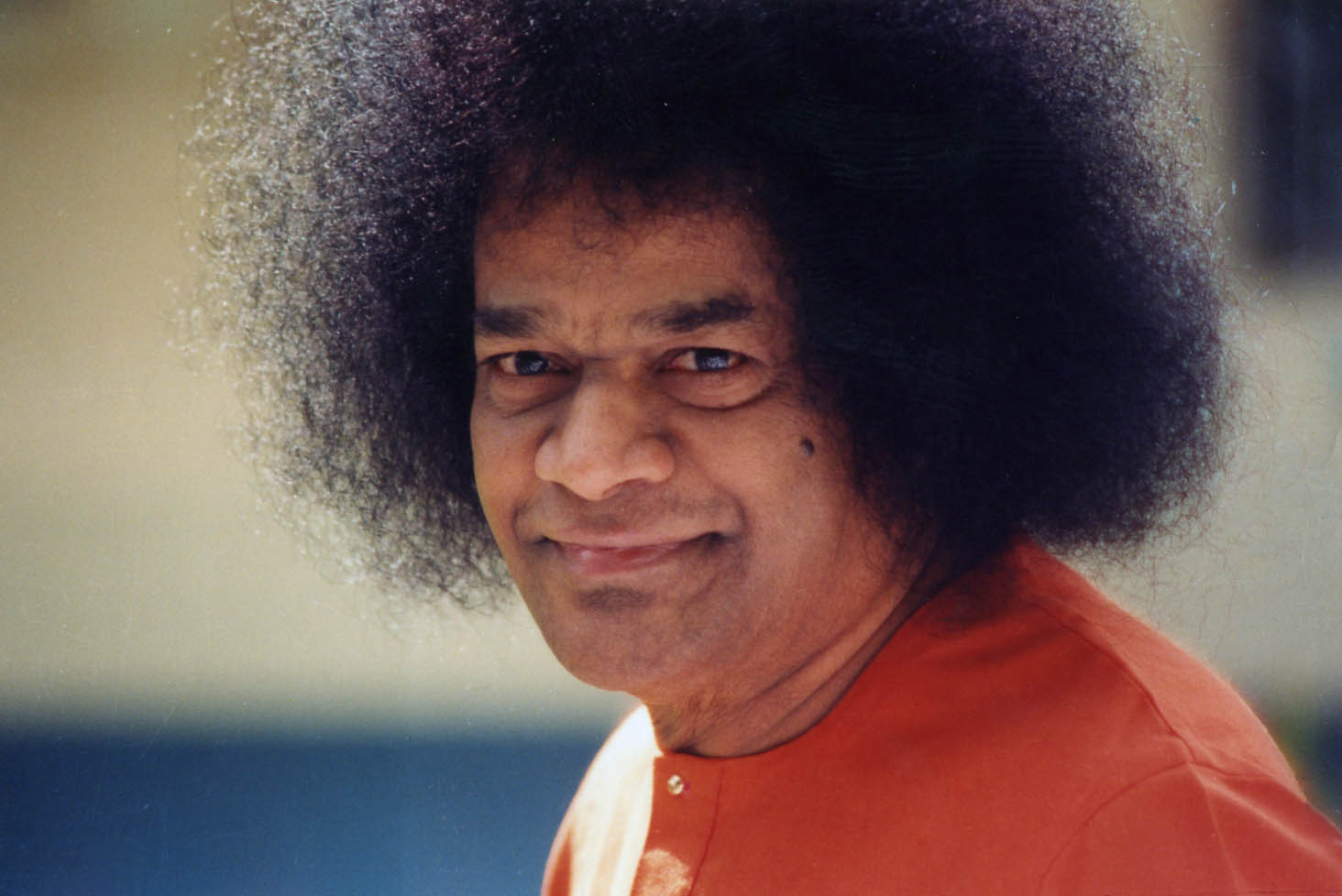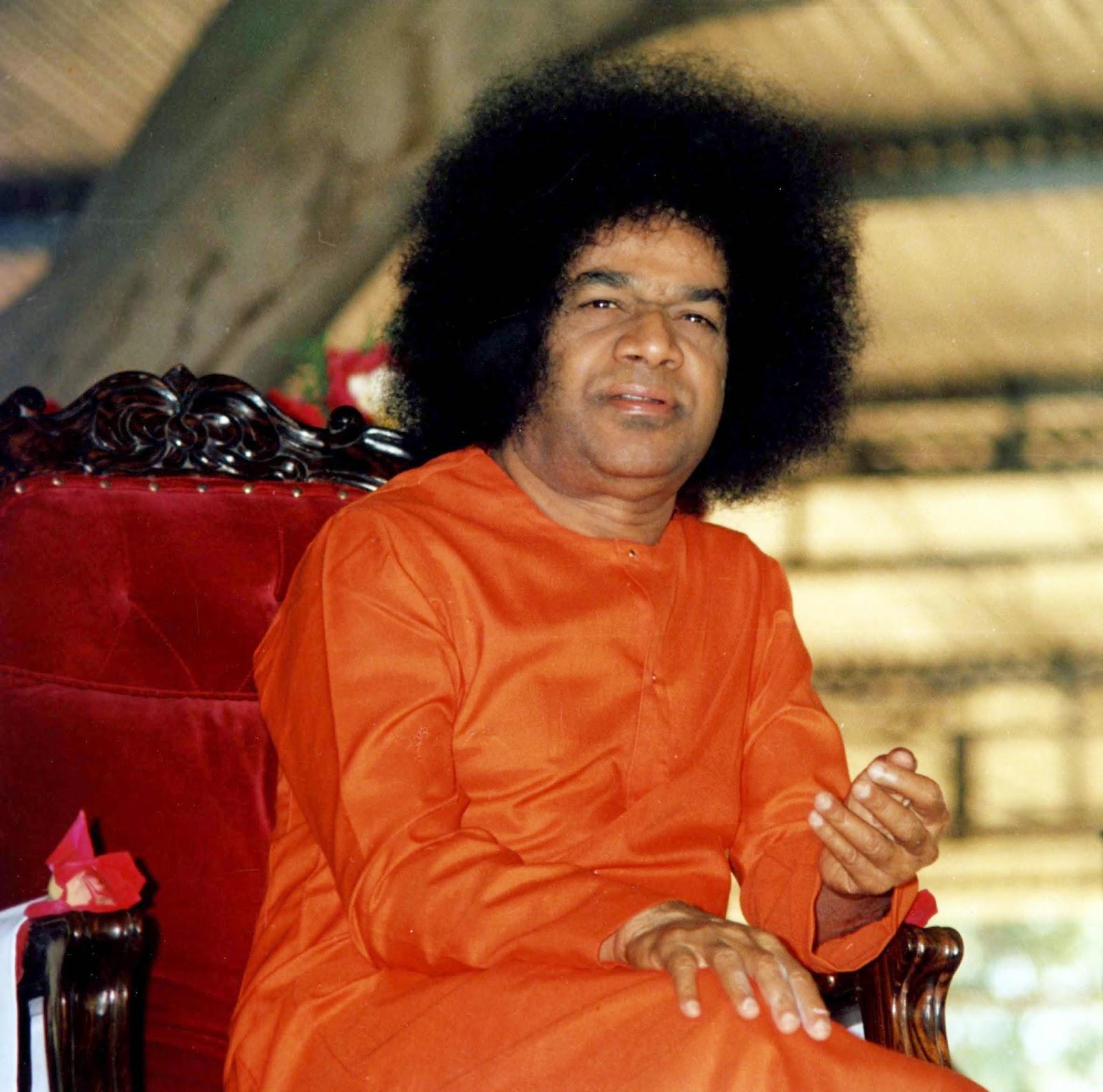


What is Dharma? What is Adharma? Even the wise are confused and confounded in deciding the nature of Dharma and Adharma because the mystery of Dharma is unfathomable. The students of Bhagawan’s Institutions are very fortunate because they get a very rare chance to understand the nature of Dharma due to their close proximity with Bhagawan – the Dharma Swaroopa. The One who has Cosmic Awareness alone can explain the mystery of Dharma.
Dharma connotes different meanings to different people. There is no exact English translation for the word Dharma. The scriptures say “Dharayati Iti Dharma”. That which supports is Dharma. Brahman is the support of everything. The entire creation is permeated by Brahman. Therefore, Dharma must make us aware of this all pervasive nature of Brahman. Only those acts which bring this Cosmic Awareness and thus facilitate merger of the soul with Brahman, can be considered as Dharmic acts. This Dharma leads us to the Transcendental Principle of Atma (Parameshti). Therefore, it is also called Atma Dharma or Swa-Dharma. However, if the embodied soul (Vyashti) is not yet prepared for this Self-transcendence, it is subject to the Dharma of the body. This is called Deha Dharma or Para-Dharma. Then the individual soul (Vyashti) is obliged to work for the welfare of the society (Samashti). Deha Dharma inculcates a feeling of harmony between the individual and the society which helps the individual to give up selfishness and evolve himself gradually. Atma Dharma is for those who have given up all desires. They attain Nishreya (liberation) through this Dharma. Deha-Dharma is for those who still hanker after desires. They attain Abhyudaya (prosperity) through this Dharma.

There is always a conflict between these two Dharmas. Abhyudaya is marked by performance of various duties while Nishreya is associated with renunciation of all duties. There are some who opine that discharging one’s own duty is Dharma. They also justify their argument by quoting the Bhagawad Gita which emphasises disinterested performance of duties. There is some flaw in their argument because the conclusive view of Bhagawad Gita is not to prompt an individual for the performance of his own duty but to attain freedom from all duties.
“He whose intellect remains unattached to everything, who has conquered his internal organs and is desireless, attains through renunciation the supreme perfection consisting of the state of one free from duties.”
Bhagavad Gita (18.49)
Bhagawan advises us to use fundamental discrimination to resolve this conflict. He explains to us through various incidents from epics as to how a particular character lacked in Dharma. The grandsire Bhishmacharya of Mahabharata is one such individual who had a noble character and yet failed in understanding his Dharma. He thought that his duty was to protect the kingdom forgetting that it was Truth and Dharma alone which could protect the kingdom. Fundamental discrimination is based on the eternal Truth of Atma while individual discrimination is based on the transient nature of the body. By using this fundamental discrimination, one overcomes all worldly temptations and attains liberation. Individual discrimination binds an individual with many obligations and does not grant liberation. Thus Bhagawan makes it very clear in the Dharma Vahini that conforming to the Truth of the Atma alone is true Dharma while all other Dharmas change with the individuals. The Smiriti also says, “Sathyannasti Paro Dharma” – There is no greater Dharma than Truth. Bhagawan often tells us that spiritual leaders must abide by this Dharma, otherwise great are the dangers to their followers.
Harmony comes only when there is Dharma in the society. Bhagawan has laid down certain ideals to be imbibed by a holistic society. There must be love for God, fear of sin and morality in society ‘Daiva Preeti, Paapa Bheeti and Sangha Neeti’. It is in this holistic society alone that there will be fulfillment of aspirations of all individuals. Dharma alone makes each person aware that he should not harm others through his thoughts, words and deeds. There is no greater sin than hurting others. There is no greater merit than helping others. The same is christened by Bhagawan as ‘Help Ever, Hurt Never’. This is the feeling of self-restraint. Unless there is Dharma, no law can ever restrain the individuals from harming others. When Dharma is incorporated in the constitution of a nation it becomes law. If individuals abide by Dharma there will be peace in the nation. However, if individuals give up Dharma, there will be social disorder in spite of very effective laws. Today we find increasing violence, corruption and unrest in the society because individuals do not practice Dharma. The present day secular knowledge does not inculcate this Dharma and so even well educated people take to unethical practices. Therefore, Bhagawan has taken up the task of moulding the character of the students by inculcating moral and ethical values.
‘When there is righteousness in the heart,
There is beauty in the character;
When there is beauty in the character,
There is harmony in the home;
When there is harmony in the home,
There is order in the nation;
When there is order in the nation,
There is peace in the world.’
– Bhagawan Sri Sathya Sai Baba
However, our ideals should not be too high to be practicable. Similarly, our ideals should not be too common to give any value to Truth. Common people will not be able to follow the high ideals of Vedanta and therefore Bhagawan advises them to bring a balance between material and spiritual life by imbibing Vedic culture. The materialistic doctrine of Charvaka (also called Lokayata Mata) which takes into cognisance the common man’s view is opposed to the fundamental principle of Truth. The survival of a civilization will be at stake if people practice this doctrine. Any civilization based on the mere creation and distribution of wealth for fulfilment of physiological, social and esteem needs of its citizens, is heading for a disaster. The socio-economic theories of the Marxists and Communists cannot ensure harmony of the human race on this planet earth. Equality does not come from uniformity of social and economic standards. The awareness of the oneness of the Atma alone can bring true equality. Any civilization which breaks the spiritual principle of ‘Brotherhood of man and Fatherhood of God’ will perish in no time. For Bharatiyas, wealth is only a means for practicing Dharma and attaining the goal of life, viz. liberation of the soul. Indian culture gives paramount importance to the freedom of the soul from the imprisonment of ego and attachment rather than to the social, political and economic freedom of the people.
Sages of yore have given us the noble ideal of ‘Atmano Mokshartham Jagat Hitaya Cha’ – We must strive for the liberation of the soul and the welfare of the world. We, the students of Bhagawan, are extremely grateful to Him for having given us this wonderful opportunity to serve the society and work out our own salvation. That alone is true education which liberates (Sa Vidya Ya Vimuktaye).

The education imparted in Bhagawan’s Institutions is not merely for securing lucrative jobs. It helps the students to lead a holistic life. The Management course offered in Bhagawan’s Institute makes the students aware of their social responsibilities. This course does not merely impart to them the tools and techniques for attaining the goal of profit maximisation as is taught in many other Management Institutes. Here the emphasis is laid on Value-Based Management. The students strive for the all-round welfare of the stakeholders. Under Value-Based Management, students are taught to consider suppliers, employees, customers, society and government as a community of stakeholders. Ethical practices in Business Management are greatly emphasised by the faculty. These values are not only preached but also practiced in everyday life. Bhagawan says that it is not enough if our intentions are good. We should also appear to be good. Unity of thought, word and deed (Trikaranashuddhi) is a very essential characteristic of Dharma. The students involve themselves in many service projects to promote the welfare of the society.

Success in personal and professional life depends upon the practice of Dharma. The Brihadaranyaka Upanishad (1.4.14) says that it is through Dharma alone a weak person succeeds in defeating a strong person. That Dharma is verily the Truth. This is the great secret for bringing a change in society. Those who practice Dharma will be able to move mountains. Those who uphold Dharma will be able to succeed in any challenging task. Where there is Dharma, there is success. They will be able to win over others through their sincerity, hard work and discipline. This conquest will not be for personal name and fame, but for the glory of Truth. It will not be the survival of the fittest but – the survival of all.
- Pradeep Kulshreshta
Student (1992-1994) Department of Management Studies
Sri Sathya Sai Institute of Higher Learning, Prasanthi Nilayam
Currently, Finance Manager, Sri Sathya Sai Central Trust
Prasanthi Nilayam